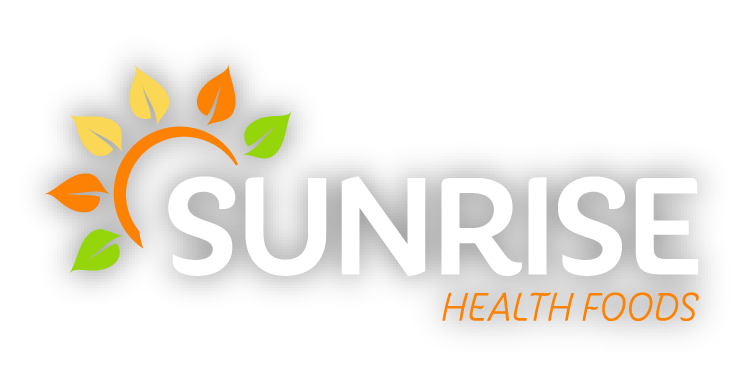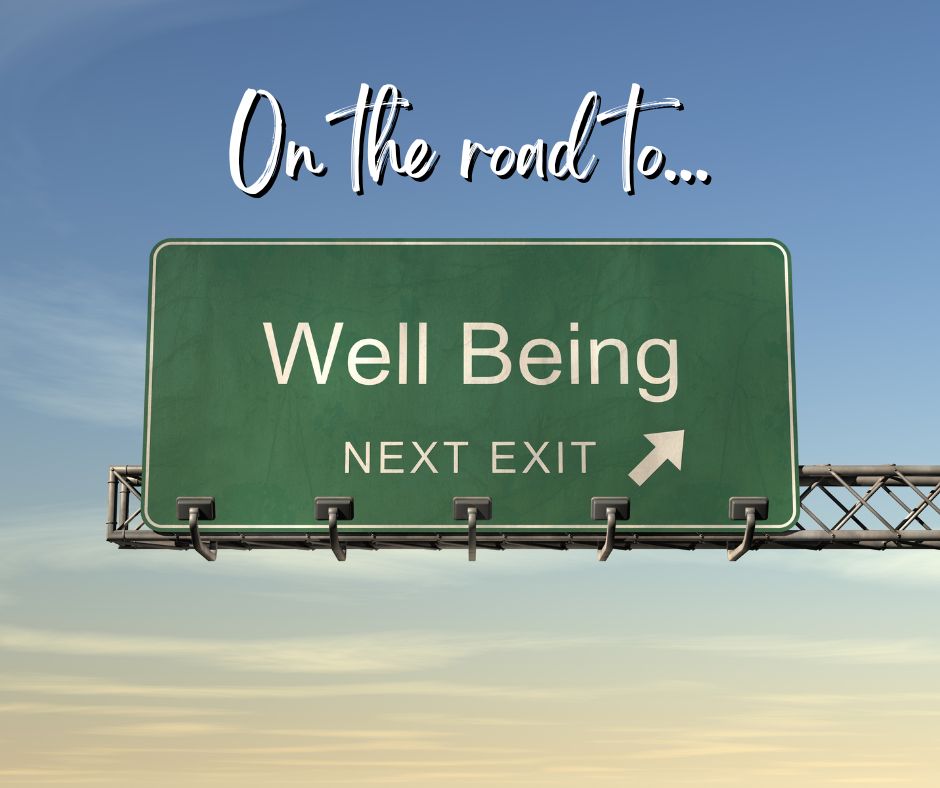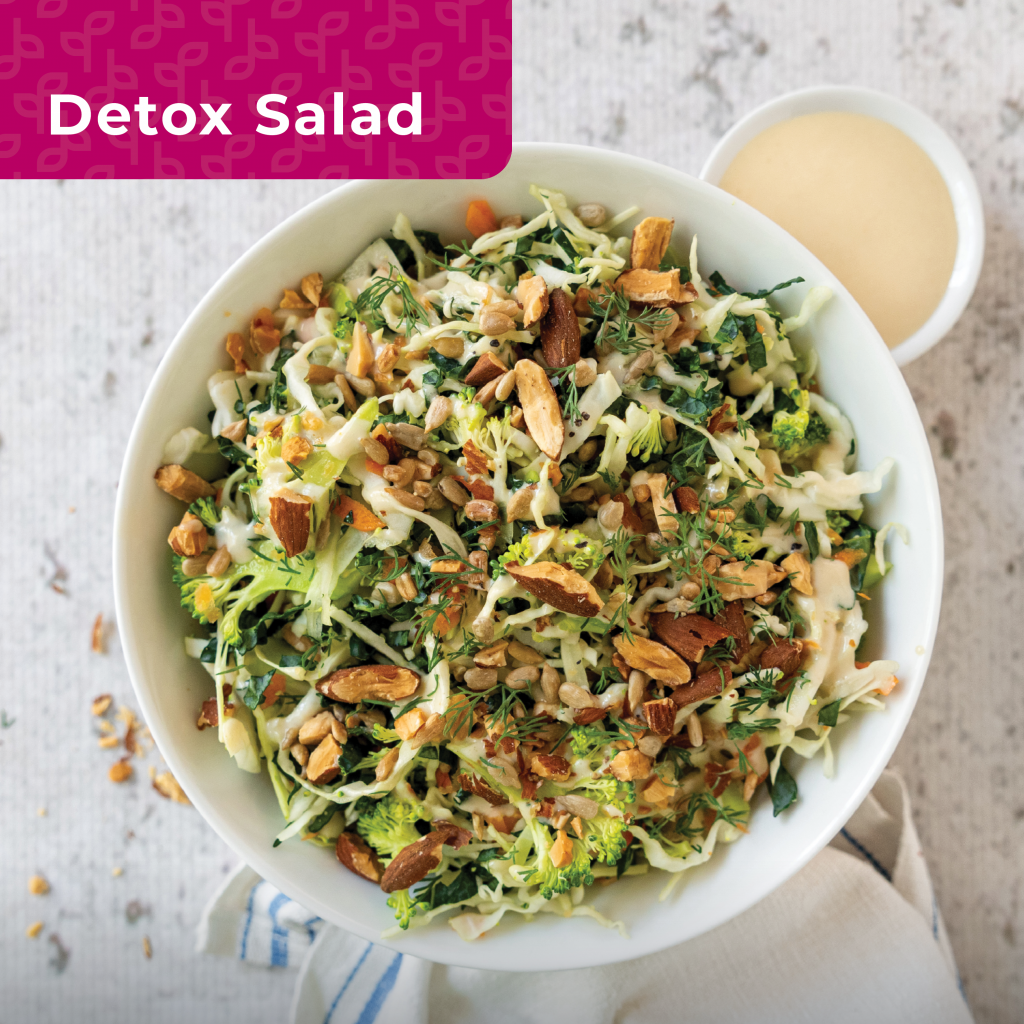Why is Wellness Important?
In today’s world, we continually experience new challenges that affect our physical, mental, and social well-being. Many of us have felt tired and stressed, which is why wellness and self-care are more important than ever. Your wellness journey is an ongoing one, and YOU are in the driver’s seat! We’re sharing some curated ideas to care for your many dimensions of wellness, so you can nurture your mind and nourish your body. Here are 25 health and wellness tips that you can use to support your wellness journey in 2025!
Health and Wellness Tips for 2025:
1. Exercise
This may seem obvious, but regular physical activity has many benefits for both your physical and mental well-being! It is one of the most important things you can do to maintain your health. Exercise can be done anywhere, including at home or at the gym. According to the Centers for Disease Control (CDC), regular exercise can help with weight management, reduce your risk of heart disease, and strengthen your bones and muscles. If you’re unsure about getting active or worried about getting hurt, try walking. Walking is a gentle exercise considered safe for most people. If you’re looking for something more intense, consider jogging, weightlifting, or yoga. Whether at home or the gym, regular exercise can help you stay happy and healthy.
2. Drink Water Regularly
Not drinking enough water throughout the day can leave you feeling sore, tired, and unfocused. How much water should you be drinking? The answer depends on multiple factors, including your health, diet, physical activity, and general lifestyle. You’ve probably heard the 8 glasses a day rule, but it’s a bit tricky because people also get hydration from other beverages and from fruits and veggies, too. In general, you can stay appropriately hydrated by drinking water throughout the day, and when you feel thirsty. If you live in a warmer climate or are more active daily, you may need to drink more water.
Try carrying a reusable water bottle with you to make sure you get enough water every day. Did you know you can even download an app to track how much water you’re drinking? Tracking water intake in a paper planner can also be satisfying.
3. Track Your Fitness
If you’re exercising, that’s fantastic! But how do you know if you’re getting enough exercise and variety from week to week? Fortunately, there are a lot of ways to track your fitness. Many fitness tracking apps are available for your phone or smartwatch, and most of them are free. A fitness tracking app can help you understand how active you are every day, so you can set goals or adjust your lifestyle as needed. You can also try an exercise watch or fitness band, which can track your heart rate and tell you how many steps you take daily. If you want a technology-free solution, use a notebook to log your efforts, or get a workout buddy and support each other.
4. Take a Multivitamin
A balanced diet helps you maintain good physical and mental health. However, busy adults are prone to making unhealthy meal choices or skipping meals altogether, so they may not get enough nutrients on a given day. Taking a multivitamin is an easy way to fill nutritional gaps in your eating pattern. Need help remembering to take your vitamins? Try setting a phone alarm or getting a vitamin case. Make a habit of taking your vitamins at the same time every day.
5. Stand Up Every 30 Minutes While Working
It’s easy to forget to take breaks at work. However, frequent breaks can keep us focused and alert throughout the workday. Plus, studies show that sitting for too long can be detrimental to your health. For example, a researcher at Columbia University is studying the health impacts of sitting for long periods of time. They found an ”exercise snack” of walking for 5 minutes every half hour had health benefits. Here’s an easy tip: Stand up every 30 minutes while working. Stretch, go for a short walk, or take care of a small task. If your schedule is completely booked, there are many stretches you can do right at your desk! Take time for yourself during your busy workday; your mind and body will thank you.
6. Get Outside
Nature is a great remedy for stress. Sometimes, there is nothing better for your mental and emotional wellness than going outside. The American Heart Association says that spending time in nature can relieve stress, improve mood, and generally boost your well-being. During the workweek, consider stepping outside on your lunch break. On the weekends, participate in outdoor activities such as gardening, walking, or cycling.
7. Eat More Herbs & Spices
Let’s face it—the typical American diet isn’t exactly bursting with studied herbs like Turmeric, Ginger, and Green Tea. But these kinds of herbal allies are packed with unique phytonutrients that can support your health. Turmeric supports healthy inflammation response for example, while Ginger is a powerful digestive aid and Green Tea has antioxidant action that helps protect cells. Pack more herbs and spices into your day by adding them to smoothies and entrees, or drinking them in herbal teas. Add high-quality herbal supplements to your routine to make sure you’re getting key phytonutrients for targeted benefits. For example, New Chapter’s Estrotone™ is crafted with Black Cohosh to tackle hot flashes and other peri-menopause symptoms. Prostate 5LX™ delivers Saw Palmetto and other prostate-supportive botanicals. Whatever your needs, New Chapter’s herbal supplements can help fill gaps in your daily herb and spice intake.
 8. Get Enough Sleep
8. Get Enough Sleep
Being well-rested is good for your wellness! That’s right, getting a full night’s sleep is an important part of holistic health. According to the CDC, adults aged 18-60 need a minimum of 7 hours of sleep a night. However, struggling to get to sleep is a common problem among adults. Inability to fall asleep and poor sleep quality can be due to a variety of reasons, from stress to noise to the distractions of technology. Improve your sleep naturally by establishing a nightly sleep routine. Turn off devices such as phones and computers an hour before you go to bed. Reserve that time for quiet activities such as reading, journaling, or drinking herbal tea. Before bed, try taking a targeted serving of of non-groggy melatonin to combat restlessness and promote deep, sound sleep.*
9. Choose Organic Foods When Possible
Organic foods are good for you and for the planet. Pure and simple. The benefits of choosing organic include better nutrient content and less chemical residue. When possible, reach for organic meats, cheeses, and produce at the store. Look for organic certifications on labels to ensure your food was grown with care for the planet. Farmers’ markets, co-ops, and local farms are great places to find organic options. Because organic food can be more expensive, joining a local CSA (Community Supported Agriculture) can be an affordable (and interesting!) way to get more organic produce in your life.
A recent movement in organic farming is regenerative agriculture. Regenerative agriculture goes a step beyond organic by managing the land with holistic, forward-thinking methods. Learn more about regenerative growers and brands that are committed to using regenerative organic ingredients—like New Chapter! For example, visit our blog called “What is Regenerative Agriculture?” to read about the importance of these farming methods and see the growing list of our products that use regeneratively farmed ingredients.
10. Practice Gratitude Journaling
Taking time to give thanks can be an instant mood-booster! Gratitude journaling can improve our overall well-being by helping us be more appreciative of our lives and the people around us. Writing it down is key because it helps our brains consciously recognize the information. The more you engage in positive writing, the more you recognize the good things around you. So, focus on the things in life you are most grateful for, no matter how big or small, and make a list every day. See how your happiness and satisfaction grow over time.
11. Read Books
Are you looking for a screen-free activity to add some variety to your routine? Try reading more books! Reading is a relaxing activity you can do anywhere and at any time of day. Reading is known to reduce stress levels by giving your brain a break from the busyness that weighs us down. It exercises your brain and keeps your memory in tip-top condition. Reading at night or before bed can even help you fall asleep. Visit your local library to browse for books or check out one of the free mini libraries around the country.
 12. Eat More Fruits and Vegetables
12. Eat More Fruits and Vegetables
Many people struggle to get enough fruits and vegetables in their daily meals. Fruits and vegetables are the cornerstones of a healthy diet because they’re packed with nutrients and provide dietary fiber. Different colors deliver different phytonutrients, so try to eat a rainbow of options. To help make every bite count, add servings of fruit and colorful vegetables to more meals throughout your week. Sliced fruit and veggies make great snacks, too. If you don’t love eating fruits or vegetables on their own, try cooking them into foods you already enjoy or adding them to smoothies. Leafy greens like spinach and kale are especially easy to disguise in soups, smoothies, and pasta sauces. Want to top up your dietary fiber? Add Organic Fiber Gummies to your daily rainbow.
13. Fix Your Posture
Good posture can support good form when exercising, helping you to avoid injuries while active. But what does good posture look like? According to Harvard health experts, good posture means having your shoulders and hips even, chin parallel to the floor, and weight evenly distributed on both feet. If you’re feeling a little out of balance, simple exercises can help to improve your posture. Focus specifically on stretches and activities that build muscle strength and improve your balance. Check in on your posture throughout the day. Ask your healthcare professional for help if needed.
14. Take a Daily Probiotic
A healthy gut means a healthy you! Keep your body and biome balanced by taking a daily probiotic supplement. Probiotics (the friendly kind of bacteria and yeasts) are what help us digest food, produce vitamins, eliminate toxins, and more. Much of our immune system is based in the gut, so good digestive health means good holistic health.
15. Get Vaccinated
Vaccines are considered a safe, effective, and important way to protect your health! Getting vaccinated significantly lowers your risk of getting infected by serious diseases or experiencing complications from common illnesses like the flu. It also keeps your family and friends safe by reducing your risk of spreading illnesses. Check in regularly with your healthcare professional to make sure you are up to date on your vaccines (and recommended screenings, too).
16. Minimize Your Sugar Intake
Cutting back on sugar in your diet can help you manage weight and improve your overall nutrition. It seems simple enough, but do you know what to look for? Sugar comes in a lot of different forms; some you may recognize and some you may not. Check the nutrition label on packaging for ingredients such as sucrose, glucose, fructose, corn syrup, or hydrolyzed starch. All of these are sugars! A simple way to cut back on sugar is to make healthier choices in the store.
- Reach for fresh, organic produce instead of processed foods.
- Choose unsweetened oatmeal over that sugary cereal.
- Consider replacing sweetened juice cocktails with 100% fruit juice (with no added sugar or flavors).
- Swap your sweetened yogurt for plain yogurt; sweeten it yourself with fresh fruit.
- Cut back on sugar in cooking or baking recipes (you probably won’t even miss it!)
- Check your supplements. Many gummy vitamins, even organic ones, are loaded with sugar. We know you want more vitamins, NOT more sugar!
17. Meditate
Give your being a break by meditating! Anyone can practice meditation, just about anywhere and at any time. Meditation is considered a mind-body practice, meaning it has beneficial effects on both your physical and mental well-being. That makes it a great tool in your toolkit for reducing the stress and anxiety that come along with everyday life. According to the Mayo Clinic, meditating can keep you calmer throughout the day and help you better manage some existing medical conditions (especially ones worsened by stress). Try a mini stress-break: close your eyes and take 3 long, slow, deep breaths while concentrating on each inhale and exhale.
18. Listen to Music
If you begin to feel overwhelmed by the stresses of the day, try listening to music. Research conducted by Johns Hopkins found that music has many positive health benefits, including reducing anxiety, lowering blood pressure, and improving sleep quality. Did you know that listening to a familiar song can even help with memory recall? Listen to music while working or before going to bed at night to tap into its calming effects.
19. Spend Time with Friends and Family
Human beings are social animals. Connection and community are a critical part of maintaining our wellness. So, reach out to your family, friends, and neighbors. If you are unable to spend time in person, try connecting over a phone call, video call, text, or email. Consider reaching out to and getting involved in your local community as well! Attend a local event such as a dinner, festival, or town hall. Introduce yourself to new people; you might even make some new friends. Remember, everybody needs a little extra connection sometimes.
20. Put Down Electronics
Sometimes it feels like no matter where you are, your phone, laptop, or tablet is just an arm’s length away. While technology has many proven benefits, it can also be a strain on your well-being. Give your mind and eyes a break by putting down your cellphone and closing your laptop. Encourage your family to join you and have a technology-free family night! Try screen-free alternatives like board games, lawn games, or reading.
21. Boost Your Minerals
Certain minerals are indispensable for human health, particularly Calcium and Magnesium. These two compounds are essential for strong bones and teeth, proper heartbeat, muscle health, nerve function, and much more. However, many Americans may lack these vitalizing earth elements. A multi-year study of over 16,000 American adults found that 39% weren’t meeting average requirements for Calcium intake and 46% were below requirements for Magnesium. Well-absorbed mineral supplements like our sea-sourced plant Calcium complex and our well-absorbed Magnesium formula can help fill nutrient gaps. Get peace of mind that you’re maintaining strong, healthy foundations!
22. Adopt a Hobby
Finding a hobby can help challenge the brain in positive ways. Learning something new gives your brain a chance to work, adapt, and maybe even forge new neural pathways. Plus, depending on what you choose, your hobby could be a chance to have consistent “me-time” OR it could help you find friends who share your interests. Some examples of activities to say yes to? Knitting, learning a new language, trivia teams, bingo, chess, creative writing, archery, role-playing games, model kits, ballroom dancing, martial arts, surfing, collecting, gardening, learning an instrument… the list is long. Keep in mind that getting out of your comfort zone can have benefits!
23. Embrace Tidiness
Tidying up and decluttering at home can have many benefits for your well-being, productivity, and happiness. A cluttered space can create stress and make you feel overwhelmed. By getting rid of things you don’t need or use, you can save money, time, and energy, and maybe inspire more creativity and focus. Organizing your home is a simple and rewarding way to enhance your quality of life! How to start? Take things slowly. Choose a room, a closet, or a drawer and organize it, getting rid of items you don’t need. You can donate stuff you don’t use. Then, move to another part of your home and take it from there. Tidiness can become a habit. Try to maintain a clean and organized space by putting things back where they belong, avoiding impulse purchases, making your bed every day, and regularly reviewing your belongings.
24. Floss, Floss, Floss
Flossing every day helps your teeth and gums stay healthy, which is a good thing. But did you know regular flossing is also linked to other areas of health? Research shows flossing helps reduce gum inflammation, and that in turn may reduce heart health risks. So, this one small, regular habit can support bonus benefits. Make sure you also brush your teeth regularly and get recommended dental checkups.
25. Follow Daily Routines
Get methodical! Developing a daily routine is a simple way to care for your well-being. Having an established, repetitive schedule can help remove stress and anxiety from your day. By following a routine, it is easy to establish healthy habits like exercising. To create your daily routine, try doing activities like chores and taking vitamins at the same time every day. Meal-prep or plan to remove additional decisions throughout the week. Don’t forget to schedule time for self-care!
The Bottom Line
Establishing healthy habits is a challenging but important part of maintaining your holistic wellness. While it is easy to get caught up in the busy pace of daily life, small actions and simple activities can make a world of difference. New Chapter is here to support you on your wellness journey in 2025—body, mind, and soul.
Shared from https://newchapter.com/blogs/wellness-blog/wellness-blog-25-health-and-wellness-tips-for-2025





